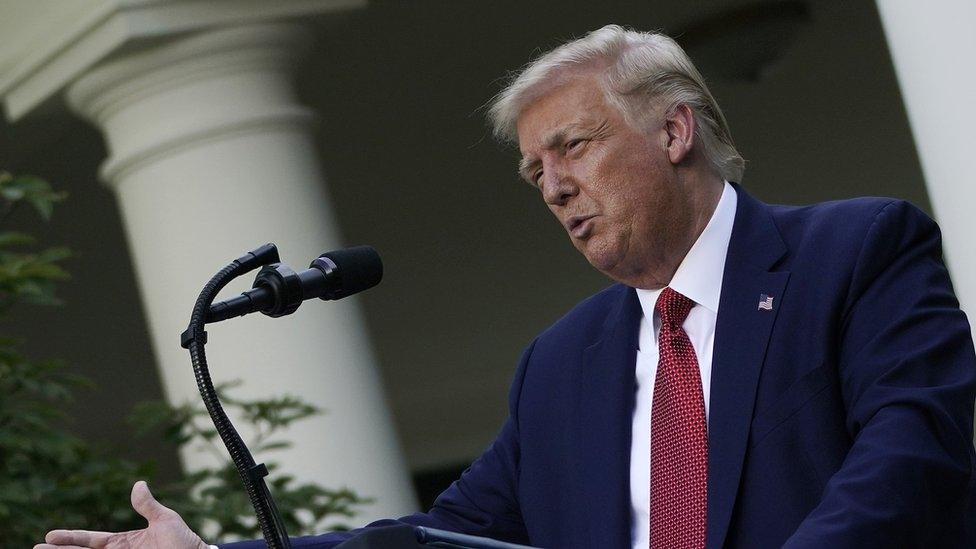US-China: Pompeo dog photo has netizens asking if US is toying with China
- Published

Innocent pet photograph, or a coded insult aimed at China's leader?
A tweet by the US secretary of state has led to speculation over whether he is trying to send a message to the Chinese government.
Mike Pompeo posted a picture on his personal account of his dog Mercer, surrounded by "all of her favourite toys", external. The toy that sits centre stage is a stuffed Winnie the Pooh.
The tweet has ignited significant attention given that Winnie the Pooh is a common derogatory nickname for Chinese President Xi Jinping.
Chinese netizens don't have a lot of love for Mike Pompeo, and regard him as "evil" and "the king of lies".
However, he may be aware that they will struggle to talk about this tweet because nicknames referencing the Chinese leader are heavily censored.
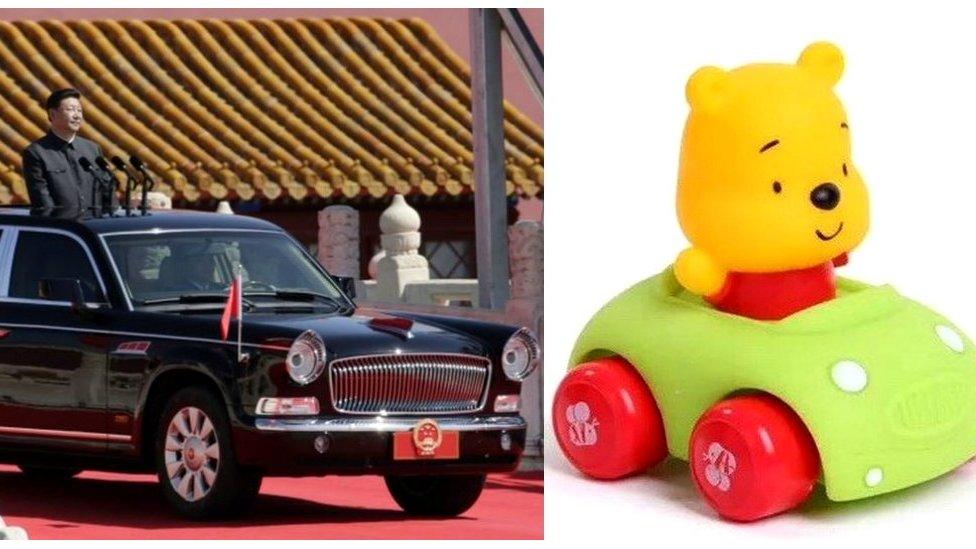
Memes comparing Xi to Pooh Bear have angered the Chinese authorities
Why Winnie the Pooh?
The Chinese government actively censors derogatory comments or nicknames that might lead to mockery of Communist Party officials. However, Chinese netizens have long come up with creative ways to reference the Chinese leadership online.
Pictures circulated in 2013 comparing the body shape of President Xi to the cartoon bear and gained international awareness.
Given the loveable children's toy makes it difficult for censors to remove innocuous content without attracting ridicule, the nickname quickly caught on.
Such tactics had previously proven successful with the leader Jiang Zemin, who many were able to talk about using "toad" related nicknames.
Is Winnie the Pooh really that sensitive?
In a word, yes.
"Winnie Pooh" and similar references have long been censored on Chinese social media platforms.
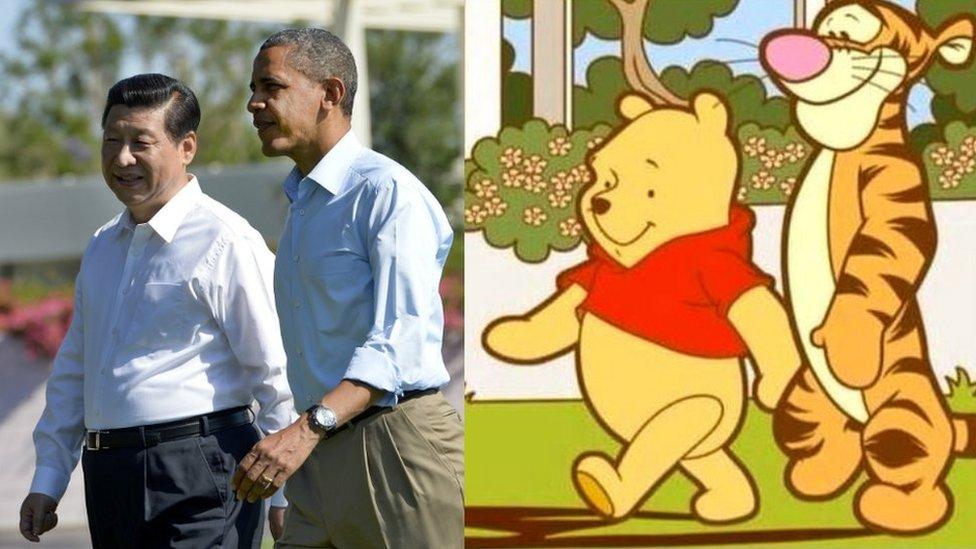
A search of the word "Winnie" on the popular Sina Weibo microblog currently only brings up government-approved media or official verified accounts.
A disclaimer also appears at the bottom of Sina Weibo also indicates that "some results have been omitted" from searches.
China even pulled a Taiwanese game, Devotion, back in 2019, because it contained a hidden reference linking Xi Jinping and Winnie the Pooh.
Could Pompeo have posted it innocuously?
It's entirely possible that the post could be an innocent photograph of Mr Pompeo's dog and her toys, but there are other potential references worth noting in this picture.
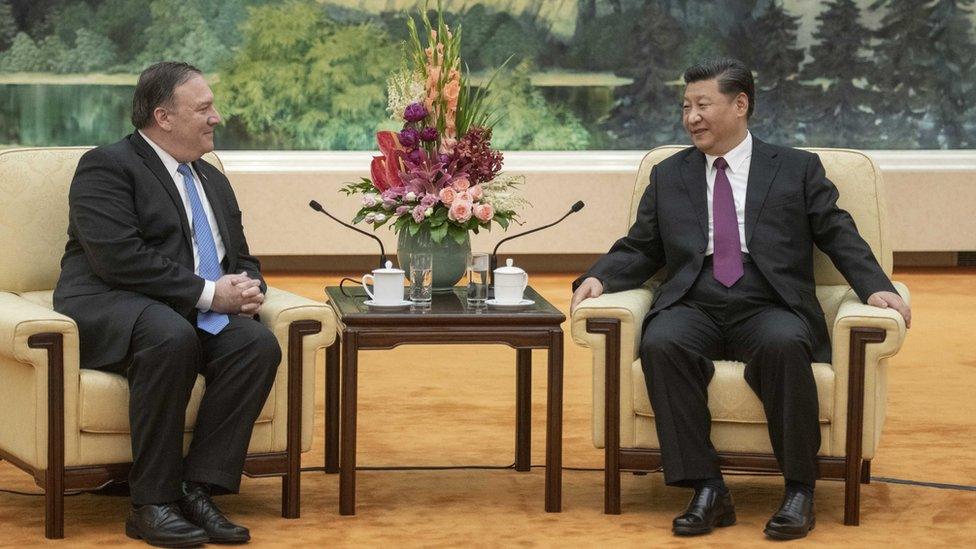
Pompeo (L) and Xi (R) met in June 2018
Mr Pompeo may have picked up on "dog" as a reference to either the US or himself. The word "dog" in Chinese is often used to reference people or countries that are regarded as aggressive, feral or wild.

You might also like

The word "dog" has previously been used by demonstrators in Hong Kong as a term of abuse for police officers. In mainland China, the US and Mike Pompeo have both consistently been called "dogs".
When Canada arrested Chinese telecom giant Huawei's Chief Financial Officer, Meng Wanzhou, at the request of the US, Canada was often nicknamed "the dog's leg" of the US.
The presence of the elephant toy may also be significant - as a subtle reference to India.
How are people reacting to this?
Thousands of Twitter users have commented on Mr Pompeo's tweet. Many have posted memes mocking the Chinese president and are commenting on how the secretary of state is "toying with China".
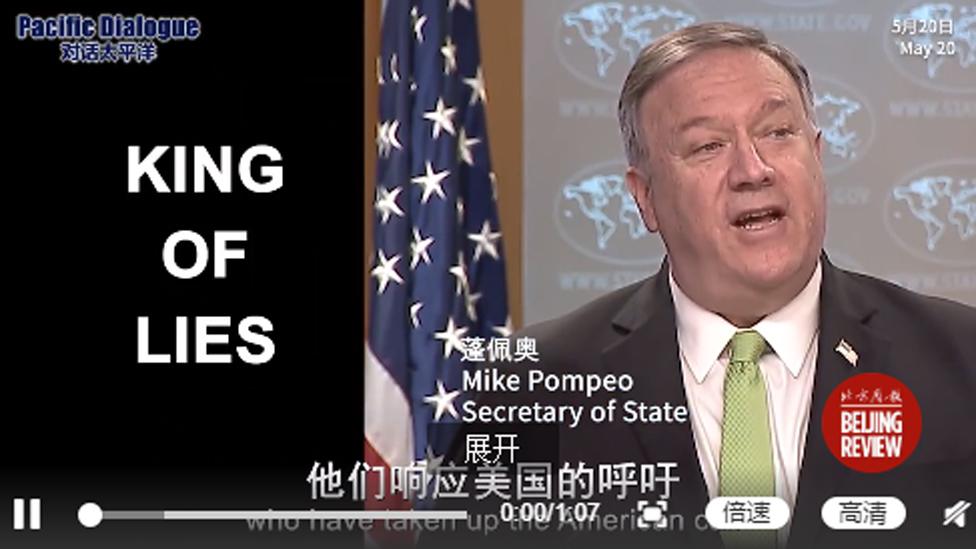
State media have not shied from showing their dislike of Mr Pompeo
But given that Twitter is blocked, and there is active censorship of references to China's past and present leadership, it's difficult for Chinese netizens to talk about his post within the country.
Consequently, it is difficult to find evidence that this image has filtered through onto Chinese platforms.
This might perhaps be surprising, given that in recent months, Chinese netizens have not missed an opportunity to target Mike Pompeo with abuse.
State media have used some strongly worded language against him since May, calling him the "king of lies" and even "evil", because of statements he and his team have given in relation to China on Covid-19, Hong Kong and Xinjiang.
He has regularly been painted in China's media as somebody not to be trusted, and Chinese media have regularly launched personal attacks on him for statements he has made.
Only, he might now have found a way to attack China personally, for which the country has no answer, only silence.
BBC Monitoring, external reports and analyses news from TV, radio, web and print media around the world. You can follow BBC Monitoring on Twitter, external and Facebook, external.
- Published17 July 2017
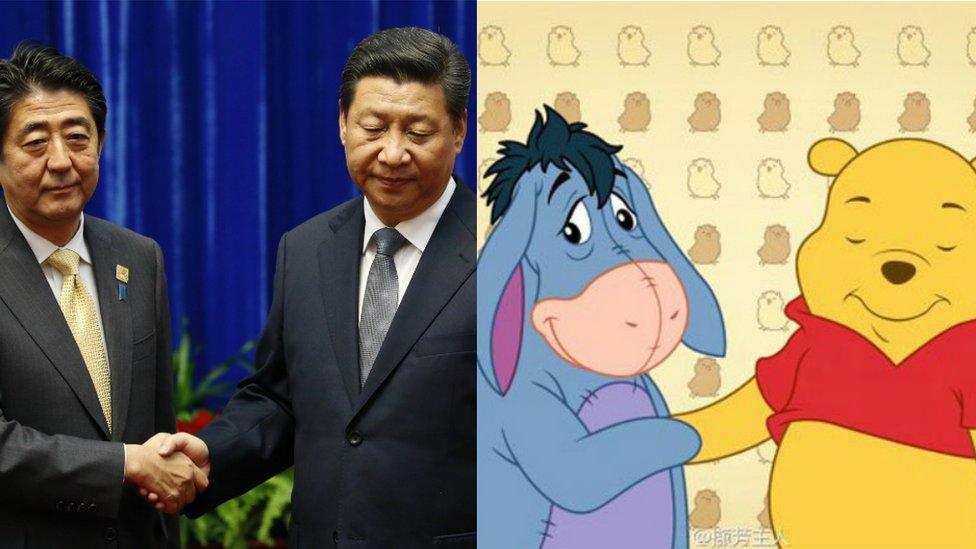
- Published25 February 2019
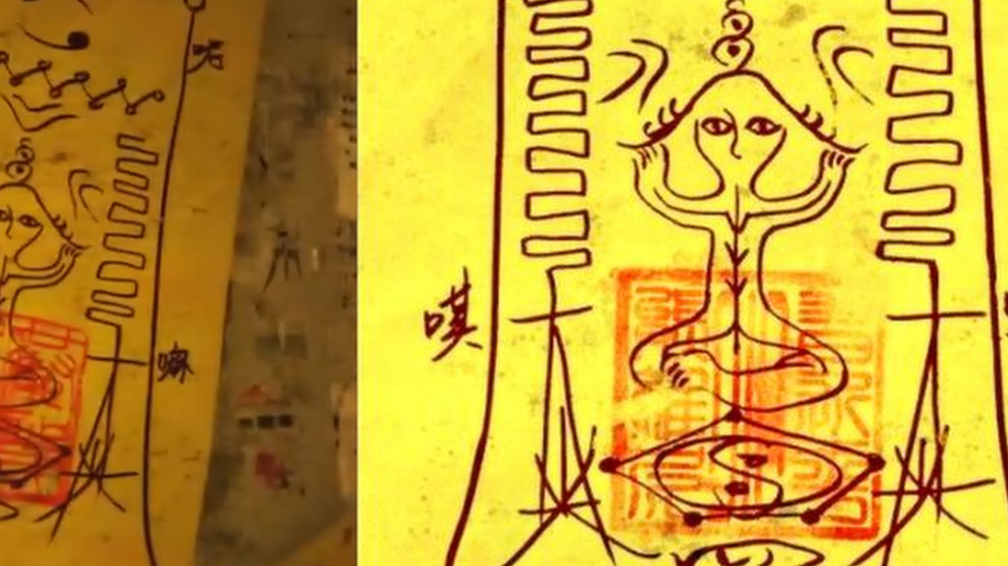
- Published15 July 2020
